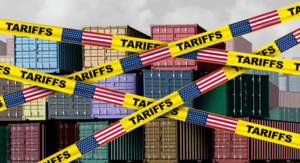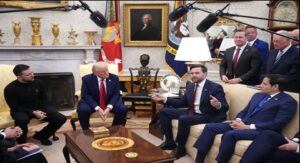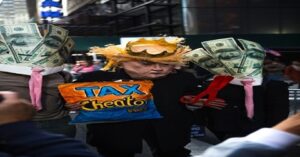
Interaction Between Economic Policies and Identity Politics
Economic policies and identity politics intersect at a critical juncture in contemporary democratic societies, where the pursuit of innovation-driven growth and income equality clashes with the divisive forces of identity politics. Conventional wisdom suggests that addressing income inequality could defuse identity tensions, yet the opposite rings true in our current socio-political landscape.
To bridge this gap, centrist reformers must embrace policies that resonate with voters, conveying a message of government accountability and inclusivity. Revamped social insurance and proactive labor market strategies offer promising avenues to mitigate economic disparities and foster social cohesion. Moreover, effective migration policies, akin to regulated sleepovers, are essential to mollify populist sentiments and reinforce a sense of collective identity among citizens.
Table of Contents
Economic Policies and Identity Politics
In today’s politics, centrist reformers confront a dilemma: crafting economic policies for innovation-driven growth and fair income distribution while tackling identity politics’ rise. The conventional view posits income equality as the solution to identity conflicts, but reality is nuanced.
Balancing economic dynamism with social cohesion requires multifaceted strategies. Effective policies must nurture innovation while addressing disparities, fostering inclusivity, and safeguarding democratic values.
Centrists navigate this intricate terrain by promoting dialogue, compromise, and evidence-based solutions, striving for a delicate equilibrium where economic prosperity and social harmony intersect, crucial for sustaining democratic societies in an era marked by diverse identities and complex challenges.
In this article, we delve into the intricate relationship between economic policies and identity politics, outlining a path forward in seven key points.
1. Recognizing the Power of Identity Politics
In a fractious era marked by political turmoil, recognizing the impact of identity politics is crucial. Neglecting to confront underlying grievances and identity-driven tensions may worsen societal divides, hinder economic advancement, and intensify political polarization.
Addressing these issues, including economic policies and identity politics, is vital to fostering cohesion, promoting inclusivity, and safeguarding democratic principles.
Only through acknowledging and addressing the complexities of identity politics can societies hope to forge a path towards unity, resilience, and mutual understanding, thereby navigating the challenges of the modern world with greater wisdom and empathy.
2. Messaging Matters
Successful policy implementation hinges on communicating a vital message: the government serves the populace, not just privileged factions. Prioritizing policies aligned with public sentiment and emphasizing inclusive governance fosters trust and combats populist rhetoric, fostering economic stability.
This approach ensures that citizens feel heard and valued, reinforcing the democratic process while addressing societal concerns, including economic policies and identity politics.
By centering on the common good and promoting transparency, administrations can cultivate a more engaged and cohesive society, bolstering democratic institutions and promoting political stability.
3. Revamping Social Insurance
A resilient social safety net, with upgraded social insurance, shields against economic instability and societal disillusionment, including the potentially divisive impacts of economic policies and identity politics.
During crises like COVID-19, it serves as a lifeline, diminishing the allure of extremist ideologies and reinforcing social unity. This safety net not only cushions individuals but also fortifies the fabric of communities, fostering resilience and solidarity.
Governments, by prioritizing robust social support mechanisms, can cultivate a more stable and equitable society, where individuals feel secure and connected even in the face of adversity.
4. Insurance as Fiscal Activism
Embracing insurance-driven fiscal activism, as advocated by scholars like Ricardo Reis, offers a pragmatic approach to economic stabilization. Governments, acting as insurers of last resort during crises, safeguard livelihoods and prevent erosion of public trust in democratic institutions. This strategy entails leveraging fiscal policies to mitigate economic shocks, ensuring stability and resilience.
By providing a safety net, governments bolster confidence and foster social cohesion. Additionally, integrating considerations of economic policies and identity politics into this framework can further enhance its effectiveness.
Reis and proponents argue that this proactive stance enhances overall economic welfare and strengthens the fabric of society, aligning with principles of sustainable governance in an increasingly uncertain world.
5. Promoting Job Creation
Active labor market policies, epitomized by the Scandinavian model, promise to counter contemporary capitalism’s dearth of quality jobs. By focusing on skill retraining, pro-employment subsidies, and job search aid, these policies bolster social mobility and counteract the appeal of populist rhetoric.
Economic policies and identity politics, combined with strategic investment in human capital and targeted support for job seekers, play a crucial role in shaping these policies.
Through such measures, societies can pave the way for a more equitable and prosperous future, fostering an environment where individuals can thrive irrespective of economic downturns or structural shifts, thereby creating favorable business opportunities.
6. Regional Development Initiatives
Fostering inclusive growth entails addressing regional disparities through targeted development initiatives, crucial for mitigating community fracturing. This involves tackling issues such as economic policies and identity politics, which can exacerbate divisions within communities.
Moving beyond mere income support, governments can implement a comprehensive “big push” strategy to stimulate economic dynamism and bolster social cohesion.
This approach involves strategic investments in infrastructure, education, and healthcare, as well as addressing economic factors like the Euro and global initiatives like One Belt One Road, empowering marginalized regions and fostering entrepreneurship.
By prioritizing equitable development, governments can bridge divides, promote opportunity, and cultivate resilient communities, ultimately advancing broader societal progress.
7. Balancing Immigration Policies
Crafting immigration policies requires a delicate balance between economic needs and social harmony, as well as navigating the complexities of economic policies and identity politics. Embracing immigration can drive innovation and economic growth, yet policymakers must acknowledge fears regarding cultural integration and job competition.
Implementing pragmatic regulations that address these concerns is crucial for navigating the complex intersection of economic and identity politics. Striking this balance ensures not only sustainable economic progress but also fosters a cohesive society where diverse perspectives enrich the fabric of communities.
Bottom Line
Effective economic policies, intertwined with understanding identity politics and addressing economic challenges, are vital for fostering inclusive growth, social cohesion, and political stability. Prioritizing policies that cater to all citizens’ needs fosters resilience and equity, countering divisive identity politics.
Centrist reformers, by embracing this approach, pave the way for a more robust and fair society, resilient against the fractures caused by identity-based divisions. This nuanced integration of economic and sociopolitical strategies holds the key to sustainable progress and unity in an increasingly complex world.





